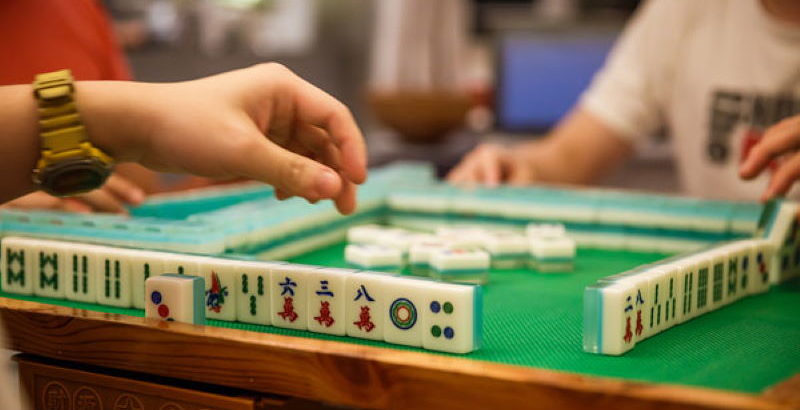There are many variations of the game of Mahjong. Here we give a very brief overview of the main variants currently in play across the world.
The main varieties of Mahjong are as follows:
- Chinese Classical Mahjong – this is the oldest version of Mahjong, and was the version introduced to America in the 1920s under various names. It has a small, loyal following in the West, although few play it in Asia nowadays.
- Hong Kong Mahjong or Cantonese Mahjong – this is now the most common form of Mahjong, differing in fairly minor scoring details from the Chinese Classical variety.
- Japanese Mahjong – this is a standardized form of Mahjong in Japan. In addition to scoring changes, the rules of riichi and dora are unique features of Japanese Mahjong.
- Western Classical Mahjong – this is a descendant of the version of Mahjong introduced by Babcock to America in the 1920s. Today, Western Classical is largely based on the Wright-Patterson rules, used in the U.S. military, and other variants of Babcock’s rules.
- American Mahjong – this is the form of Mahjong standardized by the National Mah Jongg League and the American Mah-Jongg Association. This version has the greatest divergence from traditional Mahjong. It uses Joker tiles, the Charleston rule, plus melds of five or more tiles, and eschews the Chow and the notion of a standard hand. Purists claim that this makes American Mahjong a separate game from Mahjong. In addition, the NMJL and AMJA variations, which differ by minor scoring differences, are commonly referred to as Mahjongg or Mah-jongg (with two Gs, often hyphenated).
Other variants include:
- Fujian Mahjong – played with Dadi Joker
- Taiwanese Mahjong – with 16 tiles for each player
- Vietnamese Mahjong – with 16 different kinds of joker
- Filipino Mahjong – with the Window Joker
- Pussers Bones – a fast-moving variant developed by sailors in the Royal Australian Navy; it uses a creative alternative vocabulary, such as Eddie, Sammy, Wally, and Normie instead of East, South, West and North.

